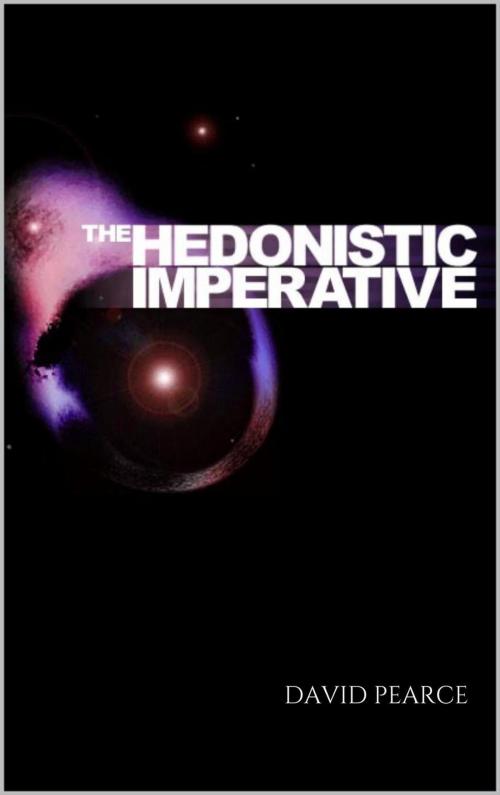The Hedonistic Imperative
Nonfiction, Religion & Spirituality, Philosophy, Ethics & Moral Philosophy| Author: | David Pearce | ISBN: | 9781507051054 |
| Publisher: | David Pearce | Publication: | January 28, 2015 |
| Imprint: | Language: | English |
| Author: | David Pearce |
| ISBN: | 9781507051054 |
| Publisher: | David Pearce |
| Publication: | January 28, 2015 |
| Imprint: | |
| Language: | English |
The Hedonistic Imperative outlines how genetic engineering and nanotechnology will abolish suffering in all sentient life.
The abolitionist project is hugely ambitious but technically feasible. It is also instrumentally rational and morally urgent. The metabolic pathways of pain and malaise evolved because they served the fitness of our genes in the ancestral environment. They will be replaced by a different sort of neural architecture - a motivational system based on heritable gradients of bliss. States of sublime well-being are destined to become the genetically pre-programmed norm of mental health. It is predicted that the world's last unpleasant experience will be a precisely dateable event.
Two hundred years ago, powerful synthetic pain-killers and surgical anesthetics were unknown. The notion that physical pain could be banished from most people's lives would have seemed absurd. Today most of us in the technically advanced nations take its routine absence for granted. The prospect that what we describe as psychological pain, too, could ever be banished is equally counter-intuitive. The feasibility of its abolition turns its deliberate retention into an issue of social policy and ethical choice.
The Hedonistic Imperative outlines how genetic engineering and nanotechnology will abolish suffering in all sentient life.
The abolitionist project is hugely ambitious but technically feasible. It is also instrumentally rational and morally urgent. The metabolic pathways of pain and malaise evolved because they served the fitness of our genes in the ancestral environment. They will be replaced by a different sort of neural architecture - a motivational system based on heritable gradients of bliss. States of sublime well-being are destined to become the genetically pre-programmed norm of mental health. It is predicted that the world's last unpleasant experience will be a precisely dateable event.
Two hundred years ago, powerful synthetic pain-killers and surgical anesthetics were unknown. The notion that physical pain could be banished from most people's lives would have seemed absurd. Today most of us in the technically advanced nations take its routine absence for granted. The prospect that what we describe as psychological pain, too, could ever be banished is equally counter-intuitive. The feasibility of its abolition turns its deliberate retention into an issue of social policy and ethical choice.















